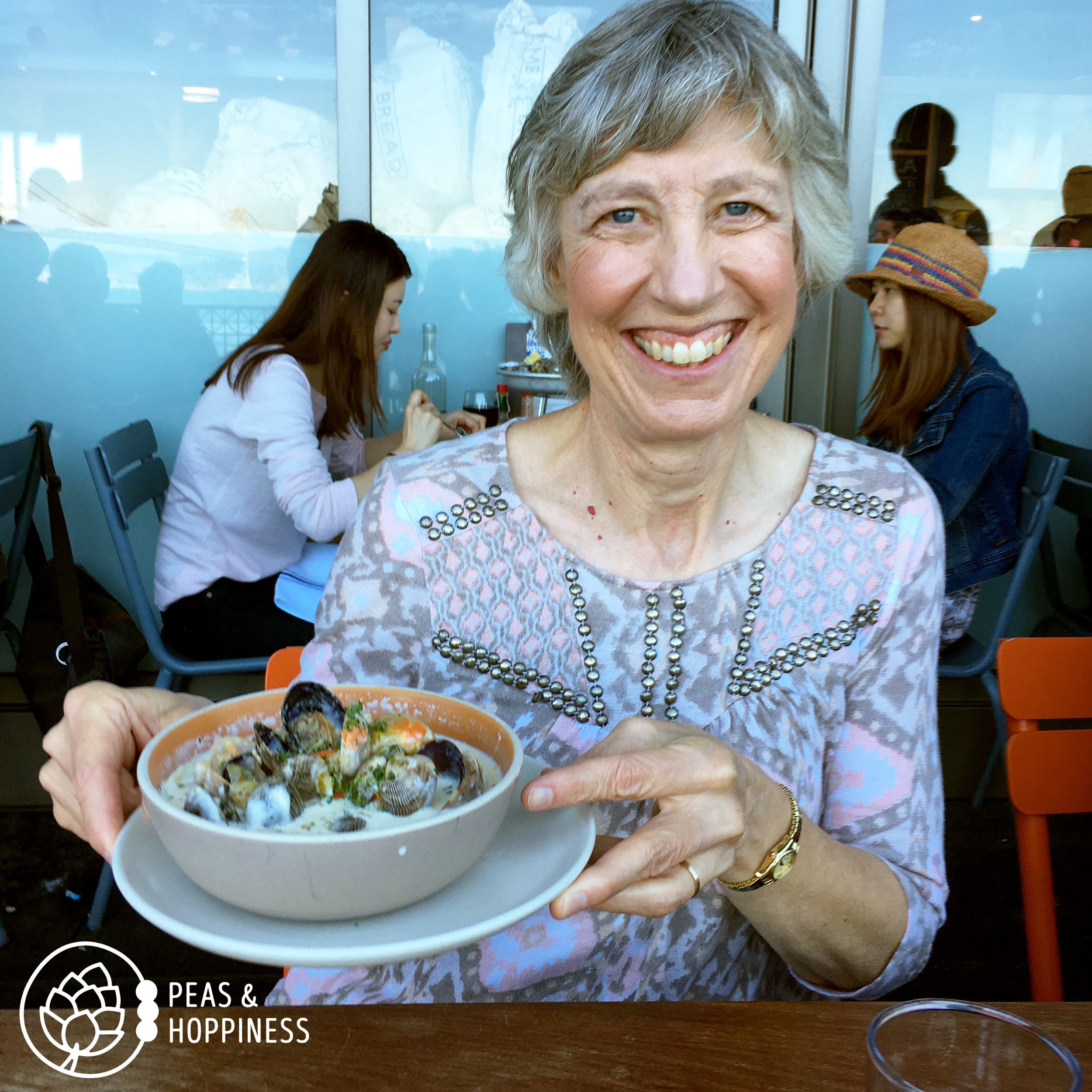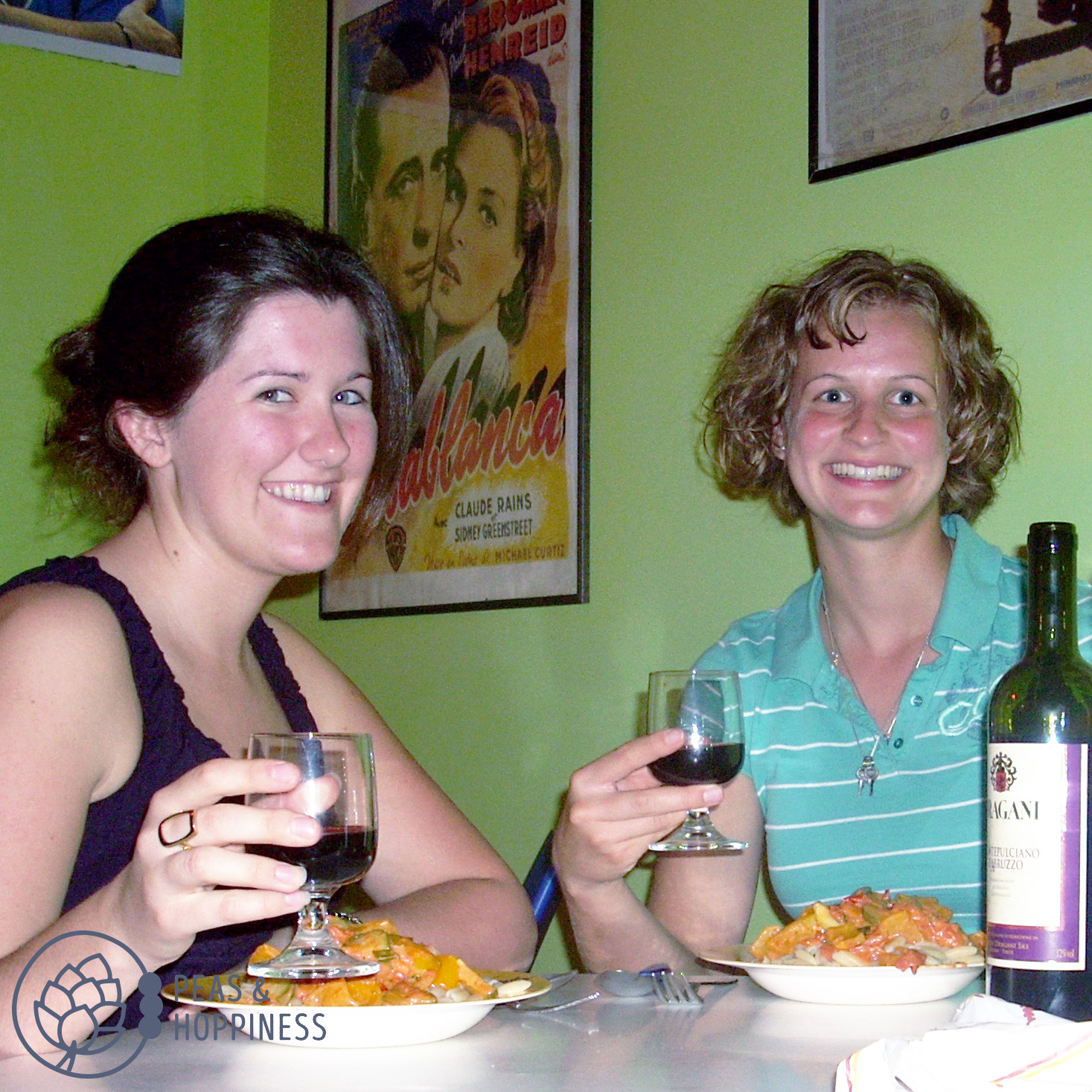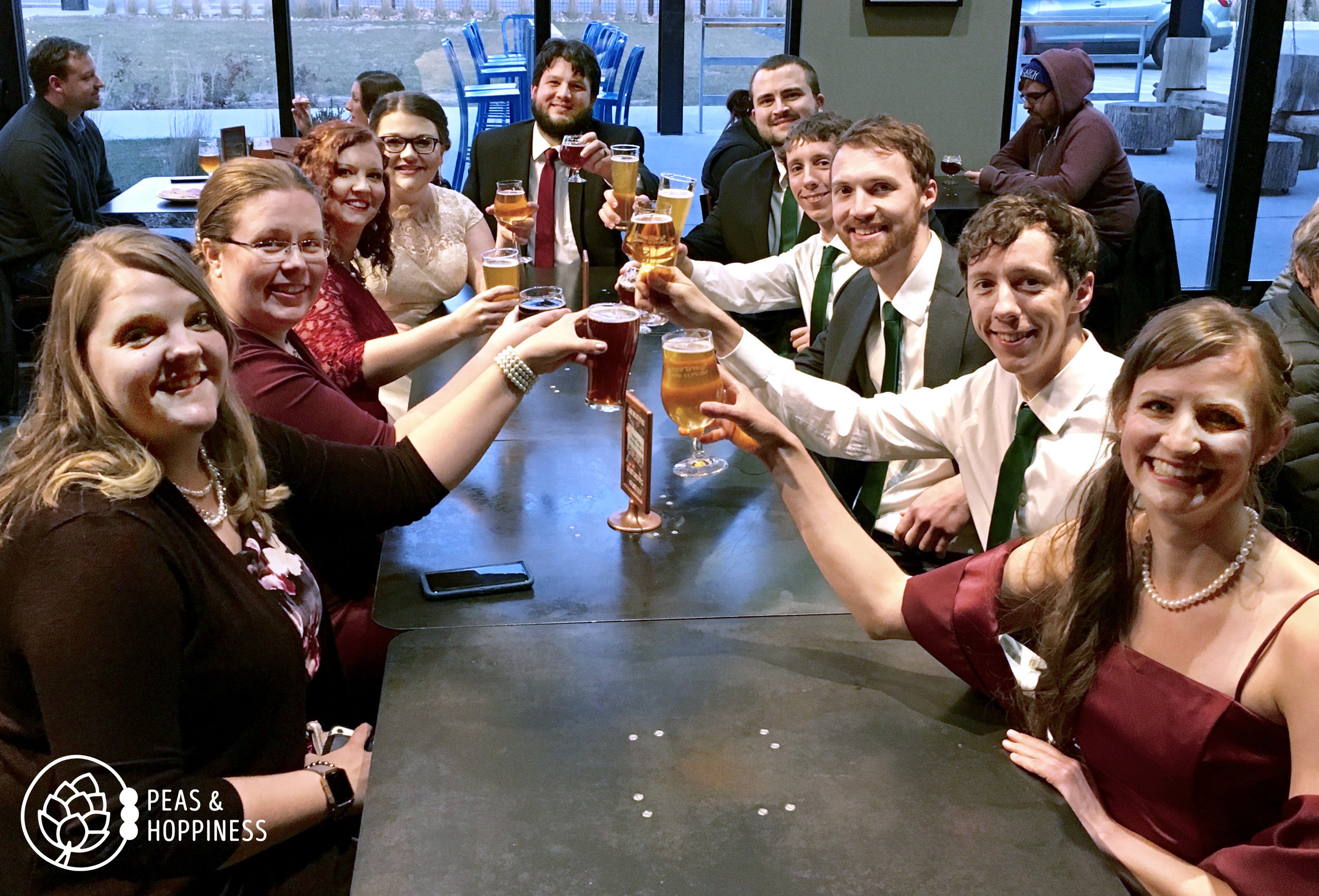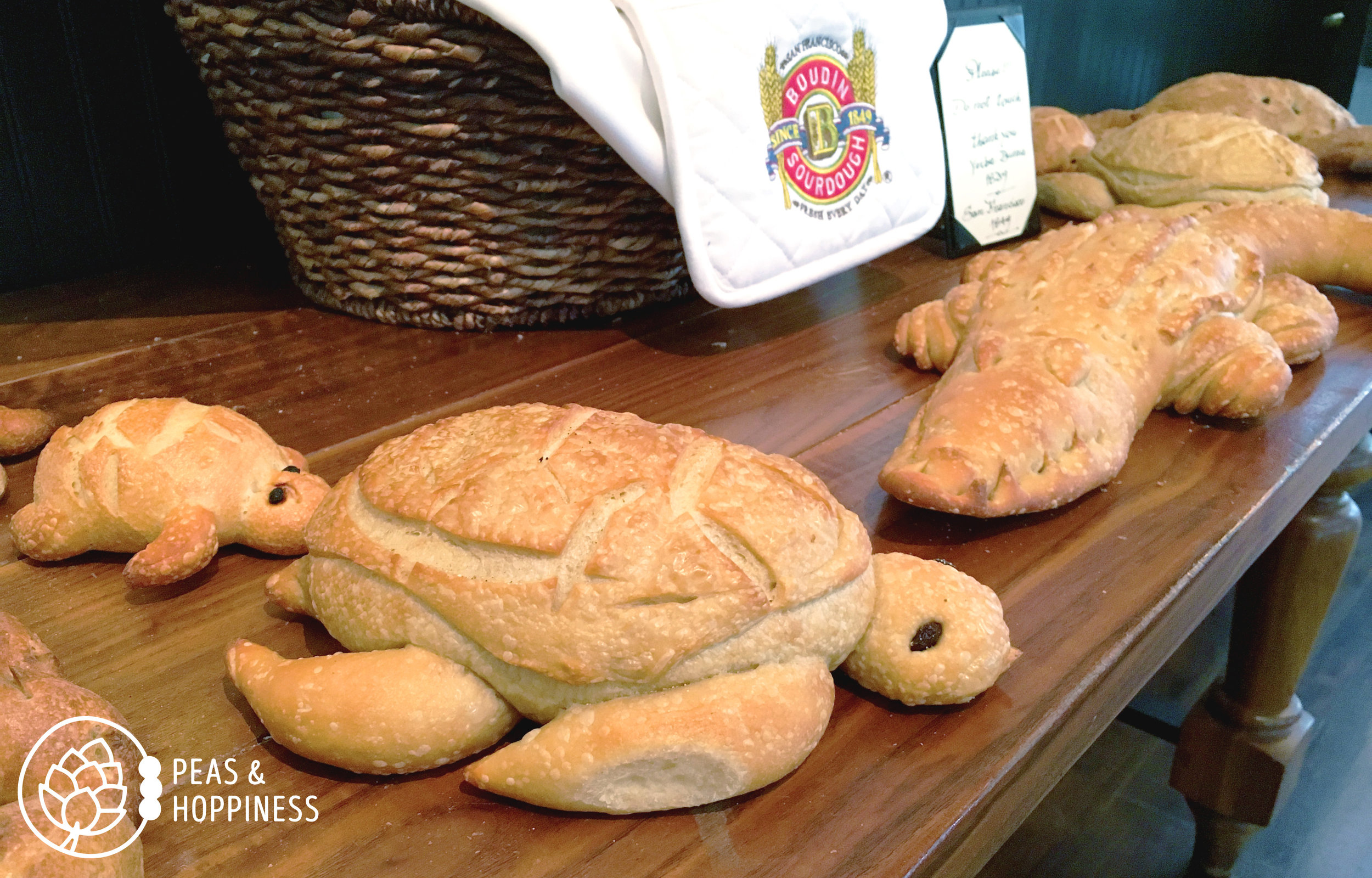I’m often asked the question of why I became a dietitian and my response is always the same: I love food!
However, my response is often mistaken to mean that I love to eat food. Which I do – but there is so much more to it than that. I love the story, the culture, the history of food. What I love most is food is the common denominator between people.

My beautiful mama with gluten-free clam chowder on our Mother/Daughter trip to San Francisco
So before I start a series about diets or share another recipe, today I simply want to share my experiences of food as the universal language of humans.
Culture shock
I was 19. My friend Megan and I had just arrived for the first time in Europe. We were all by ourselves, navigating a foreign city in a foreign language, sans parents or chaperones.
Did I mention I was 19?
We used our guidebook to find a local restaurant in Florence, Italy. (Yes, that was before Smart Phones, ya’ll.) Even then I described myself as an adventurous eater and loved to try new foods. But it had been a long few days of traveling, missing flights due to delayed connections, and navigating Italian metro routes in a foreign language; I was feeling a little overwhelmed.
So after studying the menu I decided to go with something safe to start off the trip and chose “Spaghetti Marinara,” expecting traditional pasta with red sauce. Little did I know in Italian “marinara” translates to “seafood.”

Megan and I with our home-cooked Italian meal in a hostel in Rome
My spaghetti arrived at the table and atop the twirled strands of dough sat three giant prawns.
Whole prawns.
With eyes.
My dinner was looking at me.
I took a deep breath, I poked at my new pets, and I clumsily found a way to separate the meat from the shells and enjoyed my first Italian meal.
Since then I’ve had many unique foreign food experiences. The weird meat I accidentally ordered in China when attempting to pronounce my favorite eggplant dish, chao qie zi. A seemingly endless supply of butter-filled soft pretzels in Bavaria while visiting for a friend’s wedding. Okonomiyaki, a Japanese “pancake” which seems to resemble what a college guy might decide to make when cleaning out his fridge; it’s surprisingly delicious.
While wandering through temples or reading about the history of foreign places is interesting, the times I understood most completely (or as best I could) a new culture was through the lens of its cuisine.
Rich & Poor
A couple of months ago I traveled with Pat to a conference sponsored by a well-known life insurance group. Part of the conference included a meet-and-greet dinner at a local high-class seafood restaurant. We dressed up (I even wore heels so you know it was fancy) and allowed the high-rollers to wine and dine us.
I felt terribly out of place.
Until – inevitably – the topic of food came up as we sat around making our selections for dinner. And then I answered questions about the gluten-free craze and bragged about Merv my sourdough starter. And amidst these financial men with whom I had nothing in common, I found a universal language.
Whether rich or poor, old or young, whether you speak Farsi or Spanish, if you’re a farmer or a fashionista, we all eat.

Post-wedding, pre-reception beer for the bridal party at my brother’s wedding! <3
History, Love, and Procreation
I bet your first date involved food. Mine did. We met for happy hour (which turned into dinner) at a great local wine bar, ordered a flight of wines to taste and paired it with a plate of fancy cheese and olives. My first clue to know I had met my forever person was when we both cautiously (and politely) eyed the stinkiest cheese on plate. He has great taste.
Maybe you’re not quite as obsessed with food as I am, but I bet at some point in the last few weeks you’ve thrown out at least one of these ideas:
-
“Want to go out for dinner?”
-
“Let’s meet for coffee this week.”
-
“How about happy hour after work today?”
-
“What size of popcorn should we get?” (while standing in line at the movie theater)
Whether sampling beer brewed by Monks in Germany or re-creating your grandma’s favorite casserole, food is part of the very fabric of life. Sampling San Francisco’s famous sourdough gives you a literal taste of the city’s history; wild sourdough yeast is unique to the location where it’s propagated. An Italian hoagie on fresh white bread gave me a visceral experience of Pat’s childhood.

Sourdough art at the Boudin Bakery in San Francisco
So try something new on the menu the next time you’re out. Order that weird thing the next time you travel. Or don’t. But whatever you do, never stop speaking that universal language.